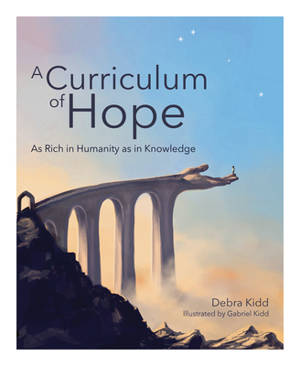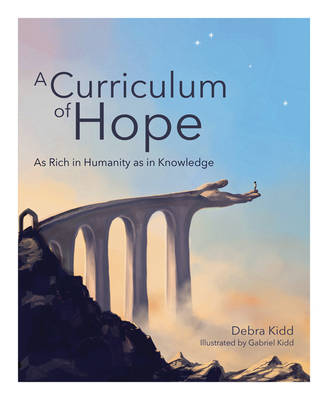
- Afhalen na 1 uur in een winkel met voorraad
- Gratis thuislevering in België vanaf € 30
- Ruim aanbod met 7 miljoen producten
- Afhalen na 1 uur in een winkel met voorraad
- Gratis thuislevering in België vanaf € 30
- Ruim aanbod met 7 miljoen producten
Omschrijving
Written by Debra Kidd, A Curriculum of Hope: As rich in humanity as in knowledge explores how good curriculum design can empower schools to build bridges between their pupils' learning and the world around them.
A great many schools are wondering how they can build a curriculum model that meets the demands of government policy as well as the needs of the children and communities they serve. In A Curriculum of Hope, Debra illustrates how teachers can deliver learning experiences that genuinely link knowledge to life.
Working on the premise that a strong curriculum is supported by five key pillars of practice coherence, credibility, creativity, compassion and community she presents a plethora of examples that demonstrate how schools, parents, pupils and the wider local community can learn together to build from within.
Debra enquires into the ways in which schools can create units of work that are both knowledge- and humanity-rich, and challenges the view that the role of children is simply to listen and learn instead advocating their active engagement with local and global issues.
She does so by delving into the role of pedagogy as a means of empowering children, and by exploring some of the more overlooked pedagogical tools that can have a great impact on children's learning and well-being story, movement and play as well as some of the recent research into memory and retention.
Towards the back of the book you will find case studies demonstrating how teachers can work with both their own and other subject departments across the school to plan in ways that allow for pupil choice, autonomy and responsibility. Furthermore, there are some accompanying planning documents for these examples provided in the appendix (The Seed Catalogue) which you may find useful, and these documents are also available for download.
Suitable for teachers and leaders in all schools.
Specificaties
Betrokkenen
- Auteur(s):
- Uitgeverij:
Inhoud
- Aantal bladzijden:
- 200
- Taal:
- Engels
Eigenschappen
- Productcode (EAN):
- 9781781353424
- Verschijningsdatum:
- 20/04/2020
- Uitvoering:
- Paperback
- Formaat:
- Trade paperback (VS)
- Afmetingen:
- 183 mm x 221 mm
- Gewicht:
- 408 g

Alleen bij Standaard Boekhandel
Beoordelingen
We publiceren alleen reviews die voldoen aan de voorwaarden voor reviews. Bekijk onze voorwaarden voor reviews.











